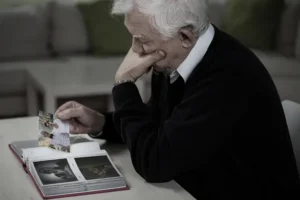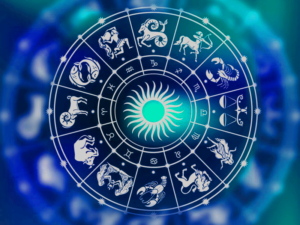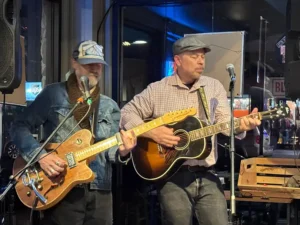If there were a “heat map” of heartburn, I’m convinced California would glow the brightest.
Triple-shot lattes, late-night tacos, after-work wine, tight schedules, and start-ups where breakfast turns into lunch — all part of the culture here. And then comes that familiar burning in the chest, the sour taste in the mouth, that feeling like a small fire has been lit somewhere inside.
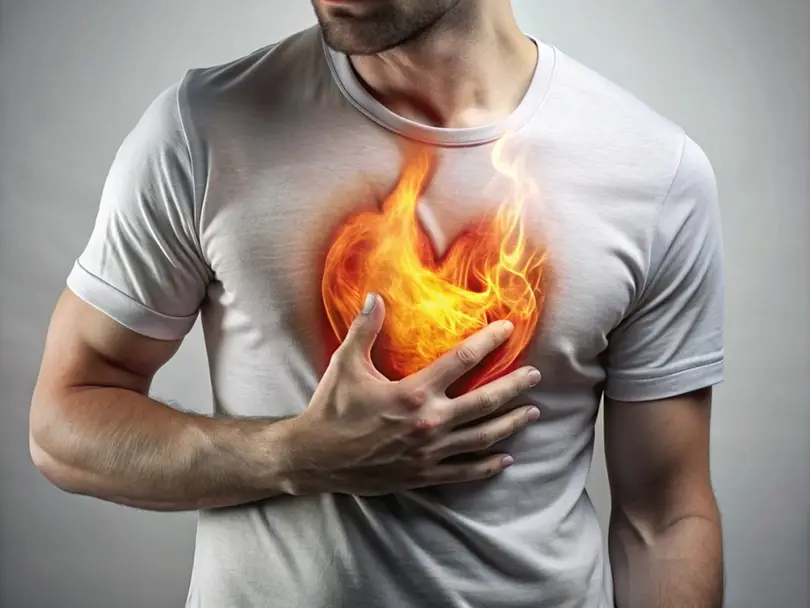
Many people treat heartburn as “no big deal.” But if it happens more than twice a week, it’s not just a passing irritation — it’s your body’s way of saying something’s off balance.
What Heartburn Really Is
Heartburn occurs when acidic stomach contents flow back into the esophagus — the tube connecting your mouth to your stomach. Between them is a small muscular valve, the lower esophageal sphincter, which should open one way only.
When it weakens or relaxes too often, acid escapes upward.
The result? That burning sensation that can climb from your stomach up toward your throat.
In California, I often see the same culprits over and over:
- Coffee and energy drinks – they relax the sphincter.
- Spicy and fatty foods – they boost acid production.
- Alcohol and wine – they worsen reflux.
- Stress and lack of sleep – they disrupt digestion.
- Late-night meals – when your stomach is ready to rest, but you’re not.
- Tight clothing and extra weight, especially around the abdomen.
It’s not just about food — it’s about a lifestyle that keeps the body on constant alert.
How Heartburn Feels
It usually starts as a burning behind the breastbone, often after eating or when lying down.
It can come with acidic burping, coughing, hoarseness, or even a lump-in-the-throat sensation.
Sometimes, people think it’s their heart — and the pain can indeed feel similar.
The danger lies in ignoring it. Chronic acid exposure damages the esophageal lining, leading to esophagitis, ulcers, or, in severe cases, Barrett’s esophagus — a precancerous condition.
So the real solution isn’t just “cooling the burn” with quick fixes, but finding the cause.
How Heartburn Is Treated
Modern gastroenterology offers several treatment levels:
- Antacids – quick relief that neutralizes stomach acid. Fast, but short-lived.
- H2 blockers – such as famotidine, which reduce acid production.
- Proton pump inhibitors (PPIs) – like omeprazole or esomeprazole, which suppress acid at the cellular level and are effective for chronic reflux.
- Surgery – in severe cases, when the valve no longer functions, procedures like Nissen fundoplication can restore the barrier.
But any treatment should start only after diagnosis — through endoscopy, pH monitoring, or ultrasound.
Taking random over-the-counter medications is like turning off a fire alarm without checking where the fire actually is.
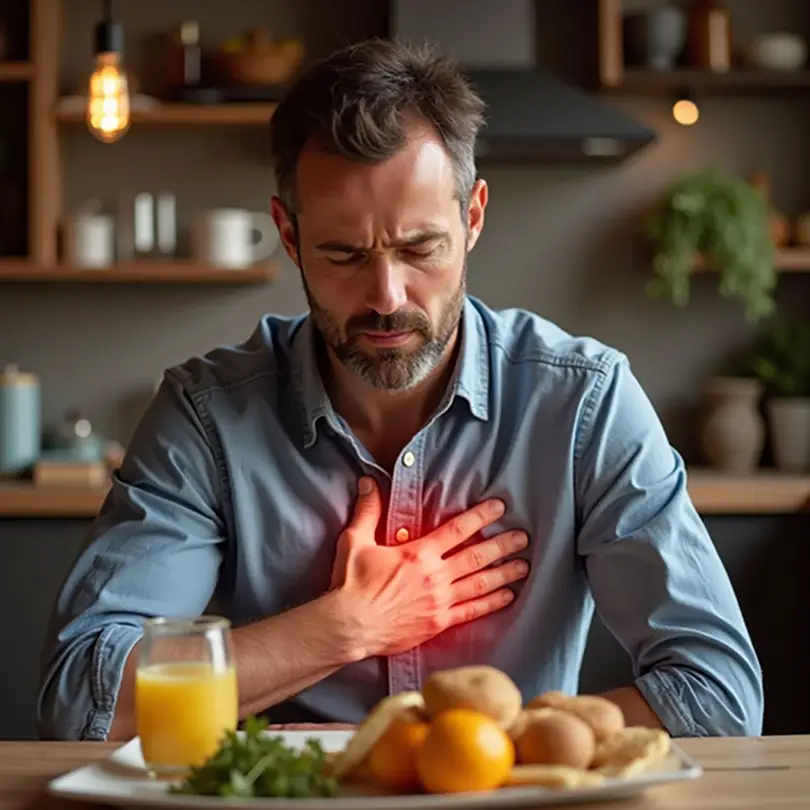
Prevention: Small Habits That Protect Your Esophagus
Heartburn is as much about lifestyle rhythm as it is about digestion.
And in California’s fast-paced world, the best cure often starts with slowing down.
Simple but powerful habits:
- Eat slowly, in small portions, 4–5 times a day.
- Stay upright for at least two hours after meals.
- Raise the head of your bed if heartburn strikes at night.
- Cut back on coffee, chocolate, citrus, and greasy foods.
- Find your stress outlet — yoga, walking, breathing, or meditation.
- Lose a few pounds if needed — even 3–5 can make a big difference.
- Avoid smoking and alcohol — both weaken the esophageal valve.
And most importantly — listen to your body. It speaks softly before it starts shouting.
When to See a Doctor
You should seek medical help if heartburn:
- occurs more than twice a week,
- disturbs your sleep,
- comes with vomiting, pain, or weight loss,
- doesn’t go away even after changing your diet.
The earlier the issue is diagnosed, the easier it is to treat — and to prevent complications.
Can You Get Rid of Heartburn for Good?
In many cases, yes. If it’s triggered by stress, caffeine, or dietary habits, it can be fully managed with simple lifestyle changes and short-term treatment.
But chronic GERD (gastroesophageal reflux disease) requires ongoing attention, not a one-time “cure.”
The goal isn’t perfection — it’s balance.
A Personal Note
Over the years, I’ve seen the same truth again and again: the body is wise.
It never “complains” without reason.
Heartburn is not an enemy — it’s a message.
“Please slow down. Pay attention. Take care of me.”
So if you feel that familiar burn in your chest, don’t just reach for the antacid. Take a breath. Drink some water. Give yourself a moment of stillness. Sometimes, that’s all it takes to put out the fire within.




